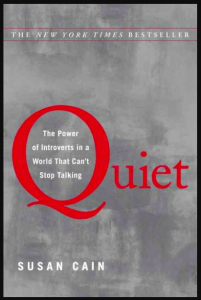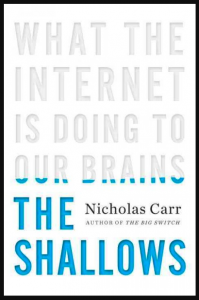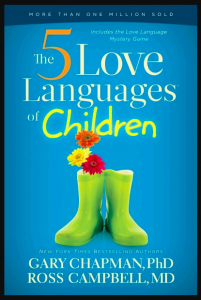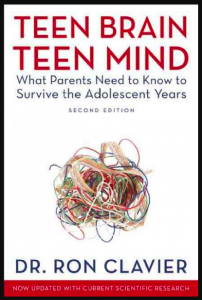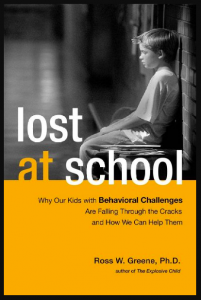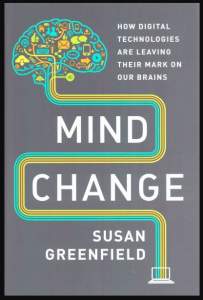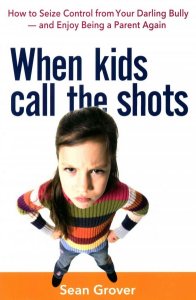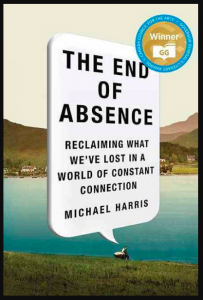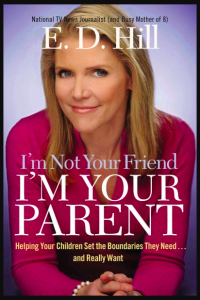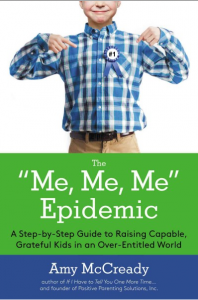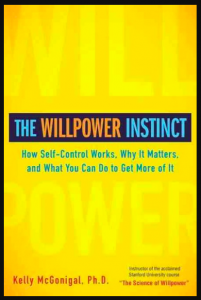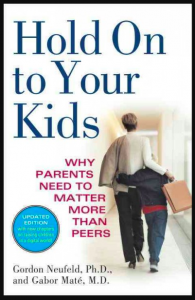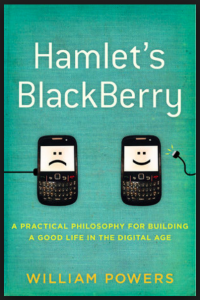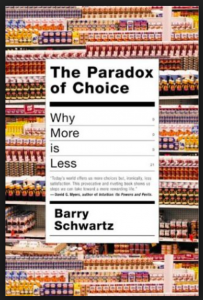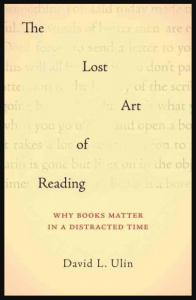Amen, Daniel G. Change Your Brain, Change Your Life: The Breakthrough Program for Conquering Anxiety, Depression, Obsessiveness, Anger, and Impulsiveness. Three Rivers Press, 1998.
Dr. Amen can be frequently seen on public television and has become very popular due to his low-key, practical approach to improving brain function. His commonsense suggestions include getting enough sleep, eating nutritious food, exercising and spending time every day learning something new. His book, though, takes a more in-depth look at how different parts of the brain affect our behaviour and what we can do to help the various parts function more effectively. While somewhat scientific in tone, the wealth of detailed information makes it a valuable read.
Cain, Susan. Quiet: The Power of Introverts in a World That Can’t Stop Talking. New York: Crown, 2012.
Cantu, Robert. Concussions and Our Kids: America’s Leading Expert on How to Protect Young Athletes and Keep Sports Safe. Boston: Houghton Mifflin Harcourt, 2012.
Carr, Nicholas. What the Internet is Doing to Our Brains. New York: W.W. Norton, 2010.
Chapman, Gary and Jennifer Thomas. The Five Languages of Apology: How to Experience Healing in All Your Relationships. Northfield Publishing, 2006.
Have you ever thought something was missing when someone said, “I’m sorry”? If so, this book can help. It describes five ways of apologizing: expressing regret, accepting responsibility, making restitution, genuinely repenting and requesting forgiveness.
Chapman, Gary and Ross Campbell. The Five Love Languages of Children. Northfield Publishing, 2005.
“Every child has a primary language of love, a way in which he or she understands a parent’s love best. This book will show you how to recognize and speak your child’s primary love language as well as four other common love languages that can help your child know you love him or her” (p. 7).
Based on an earlier book for adults, this version shows how a child’s emotional need for belonging can be filled in five different ways: touch, gifts, words of affirmation, quality time and acts of service.
Clavier, Ron. Teen Brain,Teen Mind: What Parents Need to Know to Survive the Adolescent Years. Key Porter Books, 2005.
This book focuses on the changes in teenagers’ brains and includes chapters on topics such as fashion, music, relationships and drugs. It explains why adolescents can be so moody and unpredictable. And it offers suggestions to help parents cope.
Dixon, Edmond J. Helping Boys Learn: 6 Secrets for Your Son’s Success in School. Barrie, ON: Wintertickle Press, 2013.
Many concrete strategies are given in this practical, easy to read handbook for parents and teachers. Here are the six guiding concepts:
1. Include movement.
2. Turn learning into a game.
3. Add humour.
4. Set challenges.
5. Coach to mastery.
6. Ensure learning is meaningful.
Eberly, Sheryl. 365 Manners Kids Should Know. Three Rivers Press, 2001.
Forni, P.M. Choosing Civility: the Twenty-five Rules of Considerate Conduct. St. Martin’s Griffin, 2002.
Gray, Peter. Free to Learn: Why Unleashing the Instinct to Play Will Make Our Children Happier, More Self-Reliant, and Better Students for Life. New York: Basic Books, 2013.
Greene, Ross W. Lost at School. Scribner, 2008.
Long ago, some people thought that if students didn’t do well in school, they were bad or unintelligent or unable to learn. Nowadays, many people say that if students don’t do well in school, they have ADD, ADHD, ODD or ASD. The author of this book, a professor at Harvard Medical School, offers a new perspective. There are many skills needed in order to be successful in school. Let’s take a look at them and help students learn the ones that they find most difficult using a process called Collaborative Problem Solving. While this book is intended for teachers, the concepts are useful for everyone. We all tend to find some social and behavioural skills more difficult than others and this book helps us identify them in a noncondemnatory way. If you are someone who likes to improve your skills, click HERE for a list adapted for classroom use at Skills for Success.
Greenfield, Susan. Mind Change: How Digital Technologies are Leaving Their Mark on Our Brains. New York: Random House, 2015.
Grover, Sean. When Kids Call the Shots: How to Seize Control from your Darling Bully– and Enjoy Being a Parent Again. New York: AMACOM/American Management Association, 2015.
Gurian, Michael. Nurture the Nature: Understanding and Supporting Your Child’s Unique Core Personality. John Wiley & Sons, Inc., 2007.
The author explains the science behind the behaviour of children. The chapters on adolescence explain why it is important for middle-school aged children not to be over-stimulated with multiple activities, why self-esteem naturally goes up and down during puberty and why adolescents need help in fairly evaluating situations and wisely making decisions.
Harris, Michael. The End of Absence: Reclaiming What We’ve Lost in a World of Constant Connection. Toronto: HarperCollins Publishers Ltd., 2014.
Hill, E.D. I’m Not Your Friend, I’m Your Parent: Helping Your Children Set the Boundaries They Need . . . And Really Want. Thomas Nelson, 2008.
“You aren’t a perfect parent and never will be. Neither will I nor anyone else. Let that statement sink in. Deal with it. Your children will never, ever be perfect from birth to death. But, unfortunately, we live in a world that strives for perfection. . . . Don’t give up, though, because what is possible is, through their own successes and failures, to teach our children the rules in life, how to behave, and why it’s important to keep on trying to do better so they can grow into happy, productive, loving adults” (p. xi).
“If your greatest desire to be your children’s best friend, if you want stress-free relationships with your children, if you find it impossible or uncomfortable to admit that your children will be disobedient, sneaky, or deceptive sometimes, don’t read this book. It’s not pretty. This book is the antidote to permissive parenting” (p. xviii).
Honore, Carl. Under Pressure: How the Epidemic of Hyper-Parenting is Endangering Childhood. Alfred A. Knopf Canada, 2008.
“Today. . . the pressure to make the most of our kids feels all-consuming. We want them to have the best of everything and to be the best at everything. We want them to be artists, academics and athletes, to glide through life without hardship, pain, or failure” (p. 3).
“. . . children thrive when they have the time and space to breathe, to hang out and get bored sometimes, to relax, to take risks and make mistakes, to dream and have fun on their own terms, even to fail. If we are going to restore the joy not only to childhood but to parenthood too, then the time has come for adults to back off a little, to allow children to be themselves” (p. 17)
“Being bored gives children the space to notice the details of the world around them — the fly buzzing at the bedroom window, the way the wind ruffles the curtains — and teaches them how to use and fill time” (p. 54).
Kaufman, Scott Barry. Ungifted: Intelligence Redefined. New York, NY: Basic Books, 2013.
Krashen, Stephen D. The Power of Reading: Insights from the Research. Libraries Unlimited, 2004.
This book for people who work with children explains how numerous studies show that exclusive use of direct instruction is not the wisest choice. Without time for free reading, it is difficult for students to ever reach the highest levels of reading. Reading comprehension, vocabulary, spelling, grammar and writing style all improve with in-school and out-of-school free reading. In addition, cultural knowledge, creativity, and confidence in writing and reading ability increase. And when teachers share books – read, talk and do projects with students – reading skills improve even more. In contrast, drills and exercises are more useful for testing rather than teaching.
What kinds of books can be used for free reading? They should be ones that can be read without too much difficulty. They should be from a variety of genres. And they should be interesting. While some of the books may be assigned, some should be self-selected.
Reading increases in classrooms with more books. It increases schools that have libraries which have more books, are open for longer hours, let students come on planned class visits and are staffed by librarians. It also increases when students have access to public libraries and are allowed to take out many books at once. It does not increase when the library is used as a place to socialize and play on computers. A quiet, calm environment encourages students to read more whether in a classroom, a library or at home.
Listening to adults read stories aloud increases reading comprehension and vocabulary. It also increases enjoyment of reading. Hearing and seeing adults read also increases interest in independent reading. Book displays, discussions and access to a wide variety of reading materials, including comic books or graphic novels, all help to encourage reading. There is no data to support the use of rewards as a way to improve reading skills, though.
For more details about how reading affects writing skills and how television affects reading skills, take a look at this updated classic.
McCready, Amy. The “Me, Me, Me” Epidemic : a Step-by-Step Guide to Raising Capable, Grateful Kids in an Over-entitled World. New York : Jeremy P. Tarcher/Penguin, 2015.
McGonigal, Kelly. The Willpower Instinct: How Self-Control Works, Why It Matters, and What You Can Do to Get More of It. New York: Avery, 2012.
Breathe more slowly. Sleep. Meditate. Spend time outdoors. Eat nutritious food. Stop rewarding yourself with unhealthy behaviours. Create habits that decrease variability in your behaviour. Remember that wanting something tends to be more enjoyable than actually having it. Exercise. Take time for a hobby. Be with friends. Bring to mind your biggest goal in life. Make a plan for avoiding temptation. Put off giving in for ten minutes. Put off giving in for another ten minutes. Remind yourself of your goals. Forgive yourself. While none of these suggestions are new, the scientific reasons for why they work make this easy-to-read book nevertheless interesting.
Neufeld, Gordon and Gabor Mate. Hold On To Your Kids: Why Parents Matter. Alfred A. Knopf Canada, 2004.
The authors stress that a strong emotional attachment to parents is vital for many more years than is often expected. They maintain that while children know what they like, they do not necessarily know what they need. Knowing what they need, and taking care of those needs, is the job of parents.
Newberg, Andrew and Mark Robert Waldman. How God Changes Your Brain. Ballantine Books, 2009.
Written in a friendly style by a neuroscientist and a therapist, neither of whom are religious, this nonfiction book for adults explains how what we do changes the function of our brains. You don’t have to be an adult, though, to learn eight habits for keeping our minds working properly on this page: Healthy Brains.
Post, Peggy. Emily Post’s The Gift of Good Manners. Collins Living, 2005.
Tieger, Paul D. and Barbara Barron-Tieger. Nurture by Nature: Understand Your Child’s Personality Type — And Become a Better Parent. Little, Brown and Company, 1997.
This practical book describes sixteen personality types and the specific parenting strategies that work well with each one. “Using an understanding of Personality Type, you’ll be able to view your child’s personality characteristics as assets, not liabilities. The tools and insights you gain will help you begin to anticipate, rather than just react in an emergency mode” (p. 10)
Powers, William. Hamlet’s Blackberry: A Practical Philosophy for Building a Good Life in the Digital Age. HarperCollins, 2010.
We frequently hear how technology is changing our brains and our ways of interacting with each other. But what if our 21st century challenge is really the same problem that has faced human beings for thousands of years: how can we balance our outer life of interaction with our inner life of reflection?
• Socrates, in ancient Greece, lamented writing because, unlike conversation, it did not permit an interchange of ideas, but Plato saw that one of the advantages of written communication was that people could reflect on ideas in solitude. And people needed time to get away from others and be alone. Today that might mean sometimes leaving home without a cell phone or taking an internet-free holiday.
• Seneca, in ancient Rome, noticed that some people wanted to be busy all the time, even being busy while on holidays; he noticed that people were skimming through more books but understanding less; he advised learning how to develop a quieter life. Today, that might mean slowing down enough to create handmade objects and converse with people close by rather than amassing multitudes of online ‘friends’.
• Gutenberg, in 15th-century Germany, invented a printing press that some said would result in all sorts of worthless books spreading lies. But there was an unexpected consequence: the new technology let people withdraw from others and read by themselves, and so think for themselves, about all sorts of ideas. Nowadays, many people find they are more creative and productive when they stop constantly checking incoming e-mail messages and spend more time disconnected from the internet.
• Shakespeare, in 16th-century England, wrote about little portable ‘tablets’ which could be written on with a stylus and then erased with a small sponge so the surface could be reused. These simple devices helped people keep track of things, much the way little notebooks are a useful and, oddly enough, restful way to record ideas and events.
• Benjamin Franklin, in 18th-century America, realized he was spending too much time paying attention to too many things, so he decided to follow thirteen virtues that would help him live a calmer, more self-disciplined life. Nowadays, many people are beginning to realize that they, too, are better off taking some time away from computers.
• Henry Thoreau, in 19th-century America, actually moved, for a couple of years, to a little cabin in the woods so he could experience solitude, although he entertained visitors and visited a nearby village every few days. He discovered that time alone made him better able to interact with others later. Nowadays, some people are deciding to have internet-free zones in their homes or even internet-free days in the week in order to have time to reflect and rest.
• Marshall McLuhan, in 20th-century Canada, said that people should stop letting technology rule their lives. People should value their freedom more than new inventions and find a way to maintain balance in life.
William Powers gives many more examples of how to live a balanced life in this technologically busy world and humorously reminds us that the problems we face in the 21st-century are neither unique nor insurmountable.
Schwartz, Barry. The Paradox of Choice. HarperCollins, 2004.
Does having more options lead to more happiness? Actually, it often leads to less happiness. This book for adults by a professor of social sciences explains why fewer choices often lead to greater happiness. Fortunately, you don’t have to be an adult to read the seven tips to being happier found on this page: Being Satisfied.
Ulin, David L. The Lost Art of Reading: Why Books Matter in a Distracted Time. Seattle, Wash.: Sasquatch Books, 2010.
Wonderful for any teacher of reading – for any adult, in fact – this short book or long essay explores the way books change us. They make us slow down and consider ideas more thoughtfully. They help us see how events are related and how the past affects the future . They strengthen our ability to focus for extended periods of time. They help us learn what is important to remember and what can be forgotten. They give us time to disconnect from the busy world around us and, at the same time, create a capacity for empathy. Instructive and inspiring, this 151-page book reminds readers why books are indispensable.
Walsh, David. Why Do They Act That Way? Free Press, 2004.
This book explains how parents can communicate with teenagers and their changing brains. It includes chapters on the differences between males and females, the effects of alcohol, tobacco and other drugs, and tips on how to discuss relationships and sex. It combines scientific information and practical suggestions in a readable, and even entertaining, manner.
Young, Nora. The Virtual Self: How Our Digital Lives Are Altering The World Around Us. Toronto : McClelland & Stewart, 2012.
Information abounds. But what is relevant? What is important to remember? And how does tracking everything we think, everything we do, alter our relationships with ourselves and with other people? This thoughtful book for adult readers will be appreciated by readers of The Lost Art of Reading by Ulin and Hamlet’s Blackberry by Powers.

